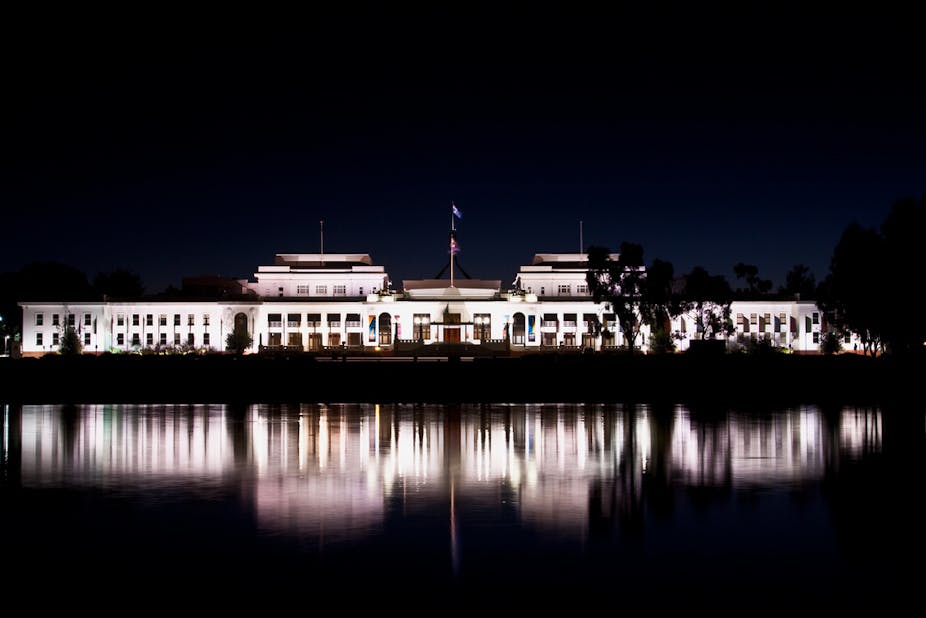MILES FRANKLIN REVIEW: The winner of the 2012 Miles Franklin Award will be announced this week. In preparation, The Conversation brings you academic reviews of the five novels shortlisted for Australia’s biggest literary prize.
For nearly 20 years, Frank Moorhouse’s Edith Trilogy has occupied a significant place in the Australian literary landscape.
But Moorhouse makes no grand claims to this achievement. Like any talented and experienced novelist, he keeps his hand well hidden. He accomplishes what the French sociologist, Pierre Bourdieu, insists is the mark of any great author: the ability to “reveal while veiling … in order to introduce us gently [to] socioanalysis”.
The three novels, Grand Days (1993), Dark Palace (2000) and the recently published Cold Light (2011), through their heroine, Edith Campbell Berry, explore the conflicts inherent to being an Australian in a sophisticated Europe; the complexities of being a woman working behind the scenes in the diplomatic community; the impossibility of wanting to fulfil one’s career potential and be successful in the conventional roles designated to women; and the political history of a nation deciding whether to stay in the suffocating yet comfortable embrace of the British Empire or find its own way towards independence.
The trilogy represents the type of sociological study that chronicles how we came to be as a nation.

Grand Days chronicles the experiences of a 26 year-old Edith embarking on a career with the League of Nations and her relationship with the dashing and sophisticated and very British Ambrose. He introduces her to the world of diplomacy and extends his tutelage, introducing her to a new world of erotic experimentation.
Dark Palace, which won the Miles Franklin Award in 2001, charts the decline of The League, and Edith’s increasing romantic entaglements. If book one is a novel of illusion and youthful optimism, book two is one of disillusionment and maturation.
Cold Light, currently shortlisted for the Miles Franklin Award, departs from the first two and places a much older Edith in Canberra in the 1950s.
We meet an Edith who is sure of herself, who, like her own country, has come of age and wants to show off her knowledge and participate in matters of importance. This attitude is readily evident as she meets her long-lost brother, Frederick, a communist. She is unwilling to be pushed to the sidelines and wants to demonstrate her ability to contribute, “to show herself a serious conversationalist on things political, not just a sister”. These scenes leave no doubt that she is a heavyweight in the public sphere, even though she is tied by the mores of being a woman in a constraining era. She readily “punches above her weight”, a phrase used regularly by social commentators wanting to describe Australia’s contribution on the world stage.
It is no accident that Moorhouse sets his novel in Canberra, the artificial heart of the nation.
Edith treats Canberra carelessly, describing it as an “unfinished city”. But it is in this unfinished city where Edith lets go of her connection to England, Ambrose. She realises “the word husband … was a lid which Ambrose did not screw properly” as she bonds with the country she originally “ran away from to find where she belonged”.
Moorhouse displays a steady hand as he reveals that Edith is too talented, too knowledgeable, too important to be contained in a marriage. The reader witnesses her bitter-sweet success and we feel her need to be a good woman, a good wife and mother. But we also feel how short-changed she is.
The character of Edith is a Flaubertian achievement, through which Moorhouse explores the trajectory of an individual in a historical, social and political context. Cameos from Gough Whitlam and Robert Menzies provide the reader with light relief and grounding context.
In Cold Light, Moorhouse astutely diagnoses the problematic nature of Australian identity. Edith makes for a wonderful protagonist. Through her, Moorhouse has crafted a masterpiece around the a career of a woman in a man’s world, and the making of a new nation in a world dominated by Europe.


